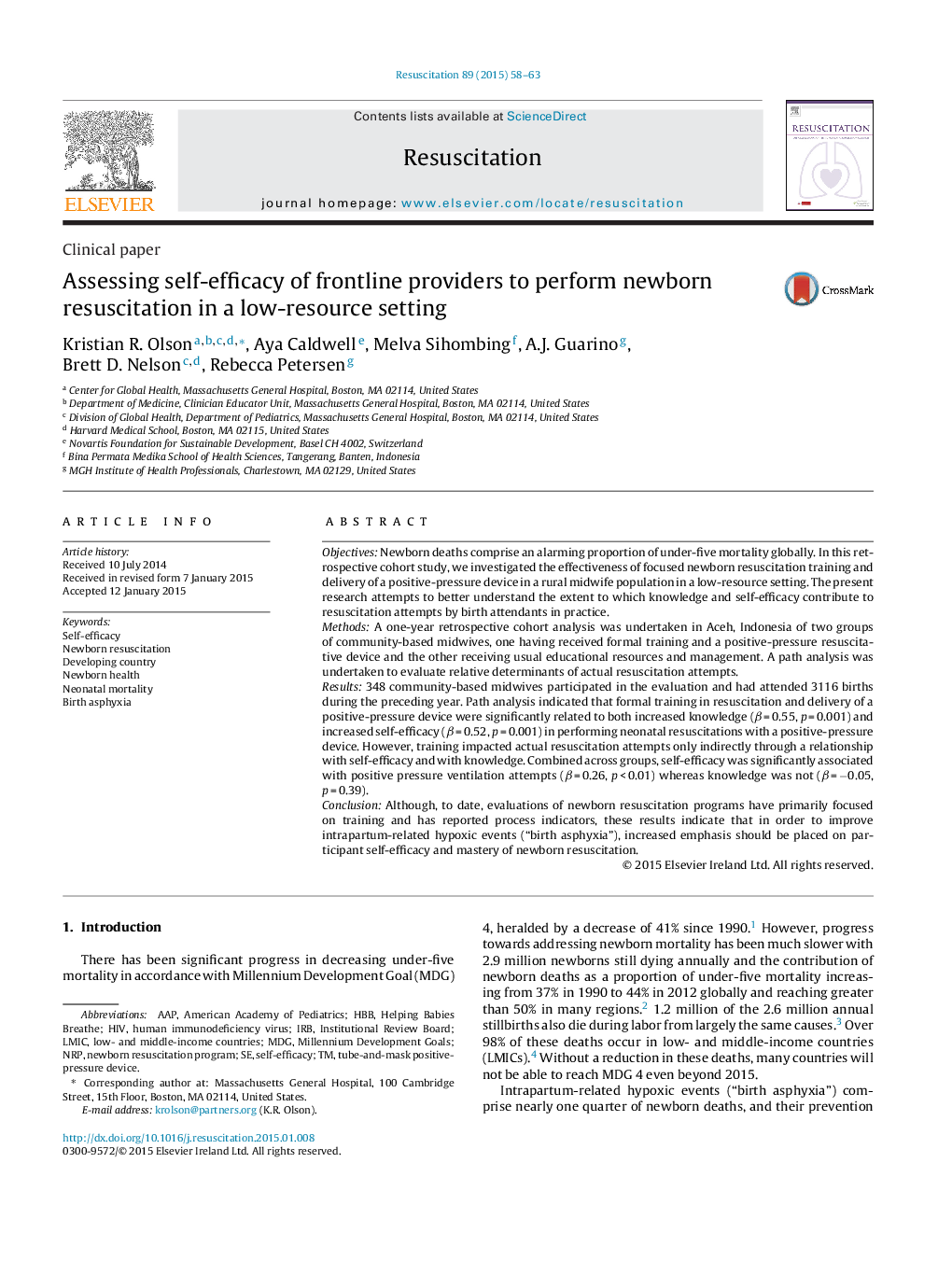| Article ID | Journal | Published Year | Pages | File Type |
|---|---|---|---|---|
| 5997949 | Resuscitation | 2015 | 6 Pages |
ObjectivesNewborn deaths comprise an alarming proportion of under-five mortality globally. In this retrospective cohort study, we investigated the effectiveness of focused newborn resuscitation training and delivery of a positive-pressure device in a rural midwife population in a low-resource setting. The present research attempts to better understand the extent to which knowledge and self-efficacy contribute to resuscitation attempts by birth attendants in practice.MethodsA one-year retrospective cohort analysis was undertaken in Aceh, Indonesia of two groups of community-based midwives, one having received formal training and a positive-pressure resuscitative device and the other receiving usual educational resources and management. A path analysis was undertaken to evaluate relative determinants of actual resuscitation attempts.Results348 community-based midwives participated in the evaluation and had attended 3116 births during the preceding year. Path analysis indicated that formal training in resuscitation and delivery of a positive-pressure device were significantly related to both increased knowledge (β = 0.55, p = 0.001) and increased self-efficacy (β = 0.52, p = 0.001) in performing neonatal resuscitations with a positive-pressure device. However, training impacted actual resuscitation attempts only indirectly through a relationship with self-efficacy and with knowledge. Combined across groups, self-efficacy was significantly associated with positive pressure ventilation attempts (β = 0.26, p < 0.01) whereas knowledge was not (β = â0.05, p = 0.39).ConclusionAlthough, to date, evaluations of newborn resuscitation programs have primarily focused on training and has reported process indicators, these results indicate that in order to improve intrapartum-related hypoxic events (“birth asphyxia”), increased emphasis should be placed on participant self-efficacy and mastery of newborn resuscitation.
